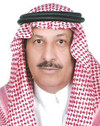Why is Riyadh not media hub

However, after that date things changed for good and it has become known as the city that introduced the first television channel to provide 24-hour news coverage and the first all-news television channel in the US. And Atlanta became the world capital of continuous media coverage.
Now, an American family does not need to sit down for dinner together to listen to the main TV networks at 6 p.m. They have the luxury to watch news at their convenience.
I started watching CNN to satiate my appetite for international news. Though its coverage of the international events was not very in-depth but still something was better than nothing.
They have enough things going on in the main land. This was confirmed on June 13, 1982 when Saudi King Khalid died and I was watching their coverage when I was stationed for training at one of the naval bases in Norfolk, Virginia. The reports about the Saudi king were very misleading to the American audience, as they aired clippings showing Foreign Minister Prince Saud Al-Faisal instead of King Khalid. So, I phoned them up and told them about the mix up and five minutes later the correct coverage was on air.
As time passed, CNN started to gain momentum and became a news trademark and established many bureaus around the world. During the Iraqi invasion of Kuwait, Saudis and people in the region remained glued to the CNN. After the war, many people expected to see the Saudi capital emerge as the next media capital of the Middle East.
At that time there were no major media outlets. During operations Desert Shield and Desert Storm, Riyadh had turned into a base for as many as 2,500 journalists and reporters from many countries around the world and from all news corporations. The Saudi capital had enough assets to host this huge number of media personnel covering the war. In other words, Riyadh was at that time the most open city to media outlets in the world. Saudi people were even capable of dealing with the foreign press that we saw all over the Kingdom.
We saw foreign journalists in many designated media centers, Saudi streets, and sport stadiums and in many Saudi homes. But, the Saudi official media departments did not go the extra mile to continue being the media capital of the Middle East. After the Gulf War, all coalition forces and media outlets left Saudi Arabia including the CNN. But, it turned out that Saudi Arabia is the new center of political and economic importance in the world.
Saudi Arabia is the most covered country in the Middle East and has the biggest media market with the highest number of people watching and using the new media and social networks. Nowadays, Saudi Arabia has the highest number of social media users in the world and has the most ready infrastructure for media expansion. But due to some bureaucratic restrictions, many news outlets chose the UAE as their base. Now, CNN Bureau in Abu Dhabi is one of the most watched in the area and Dubai build a state-of-the-art media city and what is more, Saudi-owned Al Arabiya TV channel is based in Dubai. The media outlets and bureaus help put any city on the world map, help create employment opportunities for the locals, raise the standards of the local media and increase transparency in media reporting.
In other words, Riyadh is one of the most important and influential capitals in the world and it should also have been the Middle East capital of media reporting.
Disclaimer: Views expressed by writers in this section are their own and do not necessarily reflect Arab News' point of view










































